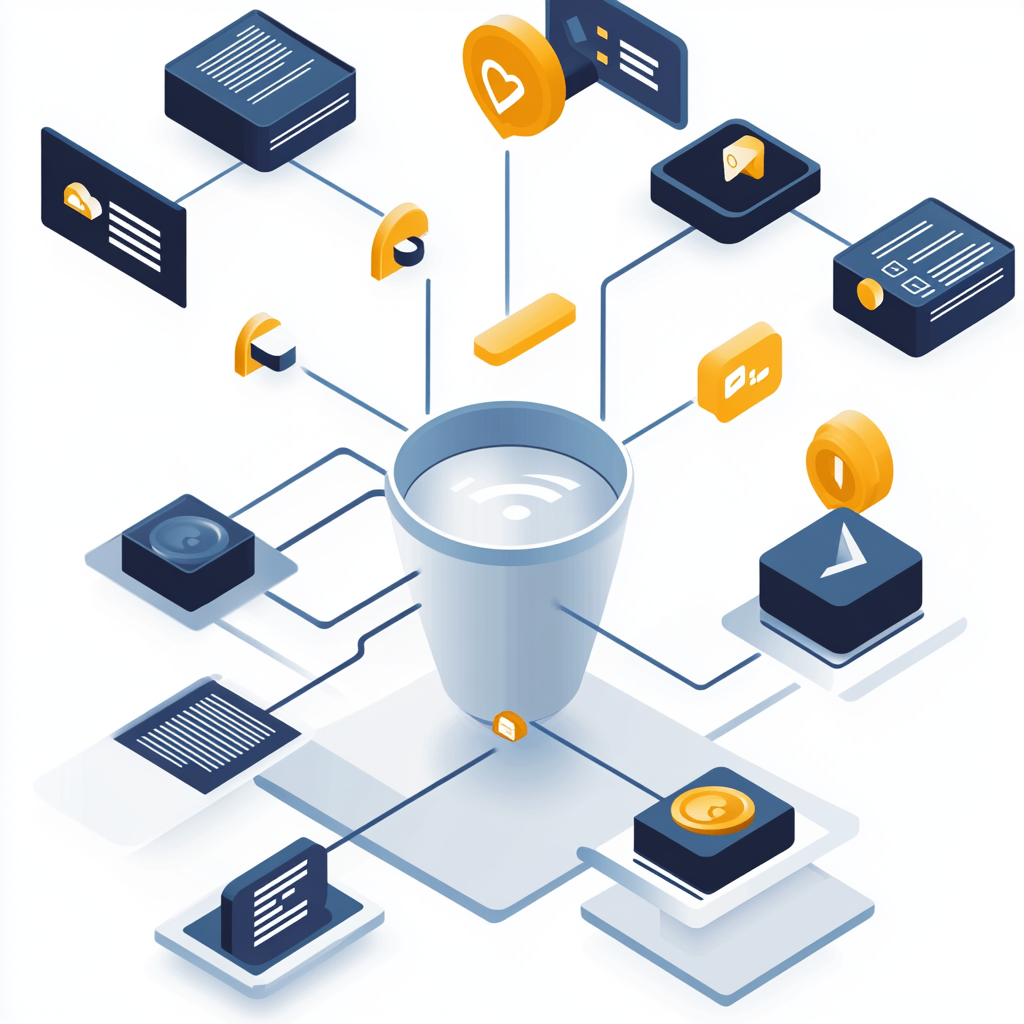The marketing landscape has transformed dramatically, and artificial intelligence has emerged as the defining force reshaping how brands connect with their audiences. As we navigate through 2025, the overwhelming majority of marketing professionals find themselves at a critical crossroads where embracing AI marketing tools isn’t just an option, it’s become essential for survival and success.
The shift toward AI-powered marketing solutions represents more than just a technological upgrade. It’s a fundamental reimagining of how marketers approach campaign strategy, customer engagement, and performance optimization. From predictive analytics that anticipate customer behavior to automated content generation that scales personalization efforts, AI marketing platforms are delivering capabilities that traditional tools simply cannot match.
This comprehensive exploration will reveal why the vast majority of marketers can no longer afford to ignore AI marketing tools, examining the core capabilities driving this transformation, the specific challenges these solutions address, and the competitive advantages waiting for early adopters who embrace this technological revolution.
What makes AI marketing tools essential for modern campaigns
Modern marketing campaigns demand a level of sophistication and precision that human-only approaches struggle to achieve at scale. AI marketing tools have become essential because they deliver four core capabilities that fundamentally transform how campaigns are conceived, executed, and optimized.
Predictive analytics transforms decision making
Traditional marketing relies heavily on historical data and educated guesswork to predict future outcomes. AI marketing platforms revolutionize this approach by analyzing vast datasets to identify patterns and trends that human analysts might miss entirely. These systems process customer behavior, market conditions, seasonal fluctuations, and countless other variables to generate actionable insights.
The predictive power extends beyond simple forecasting. AI tools can identify which prospects are most likely to convert, predict the optimal timing for campaign launches, and anticipate market shifts before they become apparent through conventional analysis. This capability allows marketers to allocate resources more effectively and make strategic decisions based on data-driven predictions rather than intuition alone.
Personalization at unprecedented scale
The expectation for personalized experiences has never been higher, yet delivering true personalization to thousands or millions of customers simultaneously presents enormous challenges. AI marketing tools excel at creating individualized experiences by analyzing customer data points including browsing behavior, purchase history, demographic information, and engagement patterns.
These platforms can dynamically adjust content, product recommendations, email subject lines, and even website layouts based on individual user profiles. The result is marketing that feels personally crafted for each recipient while being delivered automatically across entire customer bases. This level of personalization at scale was impossible with traditional marketing approaches and represents a fundamental shift in customer experience capabilities.
Automated content generation streamlines production
Content creation has long been one of marketing’s most resource-intensive activities. AI marketing tools now generate compelling copy, create visual assets, and even produce video content with minimal human intervention. These systems understand brand voice, target audience preferences, and campaign objectives to produce content that aligns with marketing goals.
The automation extends beyond simple template filling. Advanced AI tools can create entirely original content, adapt messaging for different audience segments, and optimize content performance based on real-time engagement data. This capability dramatically reduces the time and cost associated with content production while maintaining quality and consistency across all marketing channels.
Real-time optimization delivers continuous improvement
Traditional campaign optimization typically involves periodic reviews and manual adjustments based on performance reports. AI marketing platforms operate continuously, monitoring campaign performance and making real-time adjustments to improve results. These systems can modify bid strategies, adjust targeting parameters, and reallocate budget across channels based on performance data.
The speed and precision of AI-driven optimization far exceed human capabilities. While marketers might review and adjust campaigns weekly or monthly, AI tools make thousands of micro-optimizations daily, ensuring campaigns perform at peak efficiency throughout their duration.
| Traditional Marketing Approach | AI Marketing Tools Approach | Key Advantage |
|---|---|---|
| Historical data analysis | Predictive analytics | Anticipates future trends and behaviors |
| Segment-based messaging | Individual personalization | Delivers unique experiences at scale |
| Manual content creation | Automated content generation | Reduces production time and costs |
| Periodic campaign reviews | Real-time optimization | Continuous performance improvement |
How AI tools solve marketers’ biggest challenges in 2025
The marketing profession faces unprecedented complexity in 2025, with challenges that have grown beyond the capacity of traditional approaches to address effectively. AI marketing platforms provide targeted solutions to the most pressing pain points that plague the majority of marketing teams.
Conquering data overwhelm
Modern marketers have access to more data than ever before, yet many struggle to extract meaningful insights from the overwhelming volume of information available. Customer touchpoints span multiple channels, devices, and platforms, creating data silos that resist traditional analysis methods.
AI marketing tools excel at data integration and analysis, automatically connecting disparate data sources to create comprehensive customer profiles. These systems identify correlations and patterns across massive datasets that would take human analysts months to discover. The result is actionable intelligence that drives better decision-making without requiring teams to become data scientists.
The transformation goes beyond simple data processing. AI tools translate complex analytics into clear, actionable recommendations that marketing teams can implement immediately. This capability bridges the gap between data availability and practical application, solving one of marketing’s most persistent challenges.
Simplifying personalization complexity
Creating personalized experiences across multiple channels and customer segments requires coordination and precision that quickly becomes unmanageable using manual processes. The complexity multiplies when considering different customer journey stages, product categories, and communication preferences.
AI marketing tools automate the entire personalization process, from customer segmentation to content delivery optimization. These platforms create dynamic customer profiles that update in real-time, ensuring personalization efforts remain relevant and effective as customer preferences evolve.
The sophistication extends to cross-channel coordination, where AI ensures consistent personalized messaging across email, social media, website experiences, and advertising campaigns. This unified approach eliminates the disconnect that often occurs when different teams manage separate channels without proper coordination.
Eliminating campaign optimization inefficiencies
Traditional campaign optimization relies on periodic analysis and manual adjustments, creating delays between performance issues and corrective actions. This reactive approach often results in wasted budget and missed opportunities during the time between problem identification and resolution.
AI marketing platforms provide continuous monitoring and automatic optimization, identifying performance issues immediately and implementing corrections without human intervention. These systems can pause underperforming ads, reallocate budget to high-performing channels, and adjust targeting parameters based on real-time performance data.
The efficiency gains extend beyond simple automation. AI tools learn from each optimization decision, becoming more effective over time and developing sophisticated understanding of what works best for specific campaigns, audiences, and objectives. This continuous learning capability ensures optimization strategies improve constantly rather than remaining static.
Addressing resource constraints
Marketing teams often face pressure to deliver more results with limited budgets and personnel. The expectation for sophisticated campaigns, detailed analytics, and personalized experiences continues to grow while resources remain constrained.
AI marketing tools multiply team productivity by automating routine tasks and providing capabilities that would otherwise require additional staff or specialized expertise. Content creation, campaign optimization, data analysis, and performance reporting can all be handled automatically, freeing human team members to focus on strategy and creative work.
The resource multiplication effect is particularly valuable for smaller marketing teams that need to compete with larger organizations. AI tools level the playing field by providing access to sophisticated capabilities that were previously available only to companies with substantial marketing technology budgets.
Why early AI adoption gives marketers competitive advantage
The marketing landscape rewards early adopters who embrace transformative technologies before they become standard practice. Organizations that integrate AI marketing tools now position themselves to capture significant advantages over competitors who delay adoption or resist change.
Enhanced customer insights drive superior strategy
AI marketing platforms generate deeper customer insights by analyzing behavioral patterns, preferences, and engagement data with unprecedented precision. These insights reveal opportunities and trends that traditional analysis methods often miss, providing early adopters with strategic intelligence that informs better decision-making.
The competitive advantage emerges from understanding customers at a granular level that enables more effective targeting, messaging, and product development. Companies using AI tools can identify emerging customer needs, predict market shifts, and adapt strategies before competitors recognize changing conditions.
Early adopters also benefit from the learning curve advantage. AI systems improve performance over time as they process more data and learn from campaign results. Organizations that begin this learning process early develop more sophisticated AI capabilities that become increasingly difficult for competitors to match.
Campaign performance improvements compound over time
The performance advantages of AI marketing tools become more pronounced over time as systems optimize based on accumulated data and experience. Early adopters begin this optimization process immediately, creating performance gaps that widen as their AI systems become more sophisticated.
Campaign efficiency improvements translate directly into competitive advantages through better return on marketing investment, more effective customer acquisition, and higher customer lifetime value. These performance gains free up resources that can be reinvested in additional marketing initiatives or other business priorities.
The compounding effect means that small initial advantages grow into substantial competitive moats. Organizations that delay AI adoption find themselves trying to catch up to competitors who have been optimizing their AI-powered marketing systems for months or years.
Cost reduction opportunities multiply advantages
AI marketing tools reduce operational costs through automation, improved efficiency, and better resource allocation. Early adopters capture these cost savings immediately while competitors continue operating with higher cost structures and less efficient processes.
The cost advantages extend beyond simple automation savings. AI tools improve campaign performance, reducing customer acquisition costs and increasing marketing ROI. These efficiency gains provide more budget flexibility and enable more aggressive marketing strategies that further strengthen competitive position.
Organizations that achieve cost advantages through AI adoption can reinvest savings into additional marketing activities, product development, or market expansion initiatives that competitors cannot afford to match.
Market positioning advantages create lasting benefits
Early AI adoption positions organizations as innovative leaders in their markets, attracting customers who value technological sophistication and forward-thinking approaches. This positioning advantage can be particularly valuable in competitive markets where differentiation is challenging.
The reputation for innovation that comes with early AI adoption often translates into increased customer trust, media attention, and industry recognition. These benefits extend beyond immediate marketing advantages to support broader business objectives including talent recruitment, partnership opportunities, and investor interest.
Market leadership positioning becomes self-reinforcing as success with AI marketing tools generates case studies, testimonials, and proof points that further strengthen competitive position and make it more difficult for competitors to challenge market leadership.
The transformation of marketing through artificial intelligence represents more than a technological upgrade, it’s a fundamental shift in how successful organizations connect with their customers and drive business growth. The evidence is clear that AI marketing tools have moved from optional enhancement to essential capability for marketing teams that want to remain competitive in 2025 and beyond.
The core capabilities of predictive analytics, personalization at scale, automated content generation, and real-time optimization provide solutions to the most pressing challenges facing modern marketers. From conquering data overwhelm to addressing resource constraints, AI marketing platforms deliver practical solutions that transform marketing effectiveness and efficiency.
Early adopters who embrace these technologies now position themselves to capture lasting competitive advantages through enhanced customer insights, improved campaign performance, cost reduction opportunities, and stronger market positioning. The compounding nature of these benefits means that the gap between AI-powered marketing organizations and those relying on traditional approaches will continue to widen.
The question for marketing professionals is no longer whether to adopt AI marketing tools, but how quickly they can integrate these capabilities into their existing strategies and operations. The organizations that act decisively to embrace AI marketing platforms will define the competitive landscape for years to come.



